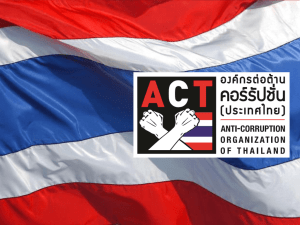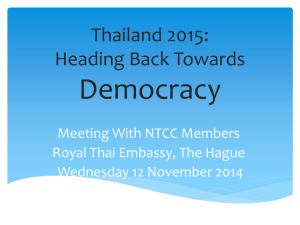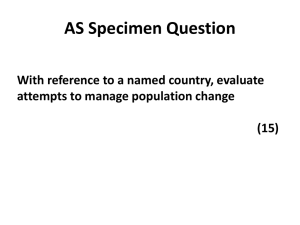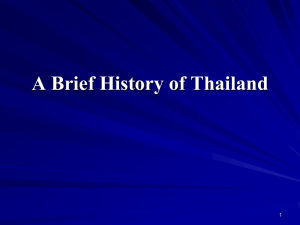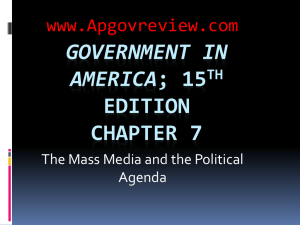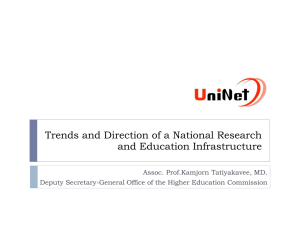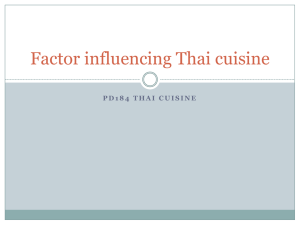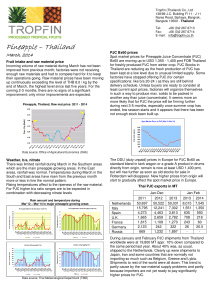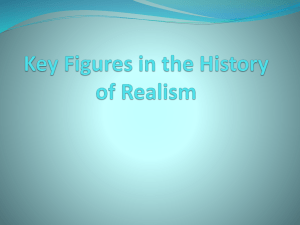Power Point on Cold War and Thailand
advertisement
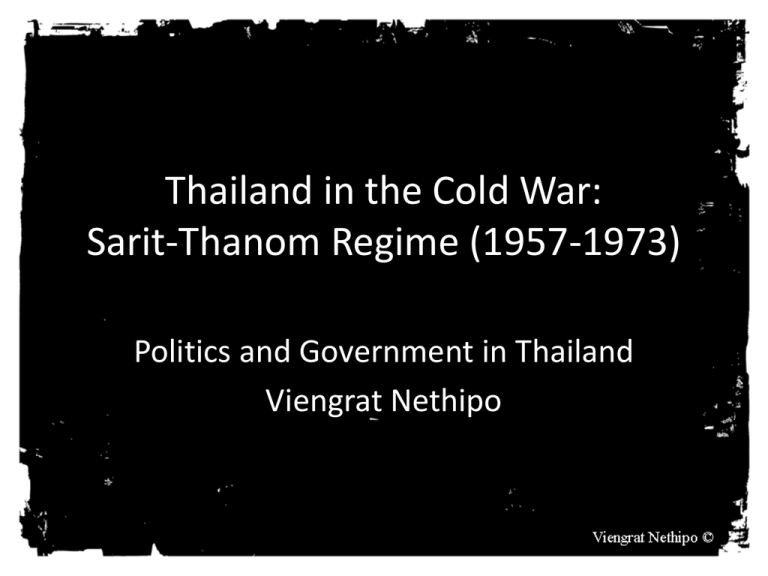
Thailand in the Cold War: Sarit-Thanom Regime (1957-1973) Politics and Government in Thailand Viengrat Nethipo Group presentation; select 1 question and answer in 5 minutes • 1. What is the cold war? What is its influence in Southeast Asian Region? • 2. What is the role of Thailand that contributed to the cold war during Sarit Regime? • 3. What is the role of USA in supporting Sarit to become the leader in Thai politics? • 4. What are the key features of economic development in Sarit period? • 5.Describe the change of Monarch’s status during Sarit’s time • 6. What is The Politics of Despotic Paternalism? • 7. What is the political view of Sarit, particularly the view on democracy? • 8. In what ways the country was modernized during Sarit’s time? • 9.What are the factors that later caused the fall of dictatorship after Sarit’s time? Phibun’s regime 1 • Phibunsongkhram as Prime Minister 1938-45 – Increase modernization – Pro fascism and nationalism – Built Leadership Cult ลัทธิเชื่อผู้นำ • “Aimed to uplift the national spirit and moral code of the nation and instilling progressive tendencies and a newness into Thai life” – Reform Thai language – Encouraged western manner Phibun Regime 2 • 1939 changed from Siam to Thailand • 1941 changed new year from Songkran to January 1 • Encouraged economic nationalism; Anti Chinese policy Alliance with Japan 1941-45 2nd Phibun term • April 1948 Phibun assumed his second premiership • 2 unsuccessful coupe attempts (1951) • Promoted democracy “Open Politics” • Entered Korean War to support USA • Received large American aid • Entered early Cold War Sarit seized power • Accused Phibun of cheating in election • American supported Thai army played crucial roles in 1957 coup Cold War ? • Communist World (Soviet) VS. Western World (USA) • Vietnam war (1955-1975), US’ military bases in Thailand (1965-75) • USA’s funding for development • USA development model for allied countries Map of Cold war Sarit Thanarat (1908-1963) • Successful in army • Staged a coup in 1957 and second coup in 1958 • Prime Minister 1958-1963 • Strong leadership • Started National Economic and Social Development Plan Politics in Sarit Regime • Governed under Martial Law • Most authoritarian in the history of modern Thai politics – Abrogating constitution – Dissolving parliament • Centralized power to his Revolutionary Party • Controlled Bureaucratic system and military Politics (2) • Banned all political parties • Strict censorship of the press (banned 18 publications) • Intense crackdown on leftists – Suppressed many professors, politicians and newspapers Chit Phumisak • Historian, writer, left wing intellectuals • “Che Guevara” of Thailand • • • • Studied philosophy at Chulalongkorn The Face of Thai Feudalism 1965 joined Communist Party of Thailand Killed in 1966 Bureaucratic Polity • No Elections • No political power from society outside bureaucracy • No political participation from people • Decision making relied on bureaucratic elites Economic Development • Established National Economic and Social Development Board (NESDB) สภำพัฒฯ • 1961 launched the 1st National Economic and Social Development Plan • Technocrats’ role in decision making – NESDB – Bank of Thailand – Finance Ministry Mittraphap Road (#2) Thai Railway Ideology: Thai Style Democracy • Political Instability caused by too much democracy • Nation (and state) is more important than individual • People do not need to participate, they can assure the country is in good hands (elites) • Thainess should be applied in government and politics (Western is not suitable to Thai society) Ideology: Despotic Paternalism • • • • • • Help children Keep family security Promote health and morality Command Visit family members Father or Dictator? As Father The Role of the King • Represent Thailand to other countries • Visited provinces • Patronized development projects • Personally presented degrees for university graduates • Practice of laying on the ground in front of the royal family http://www.youtube.com/watch?v=5 WGCMfKyulo Role of the King • http://www.youtube.com/watch?v=ZjRAak_sx nk • Role in Development • National day – King’s Birthday • Role in Government Sarit’s funeral Thanom Kittikajorn • Prime Minister 1963-1973 • Army commander • 1971 election, then made a coup against himself University Students • Upper Class (graduate ceremony) • Enjoyed privileges • Outside politics BUT 1960s Hippies culture Liberalism Anti Vietnam war 1963http://www.youtube.com/watch?v=Kt5MDaTapEw http://www.youtube.com/watch?v=-7Y0ekr3So Woodstock

